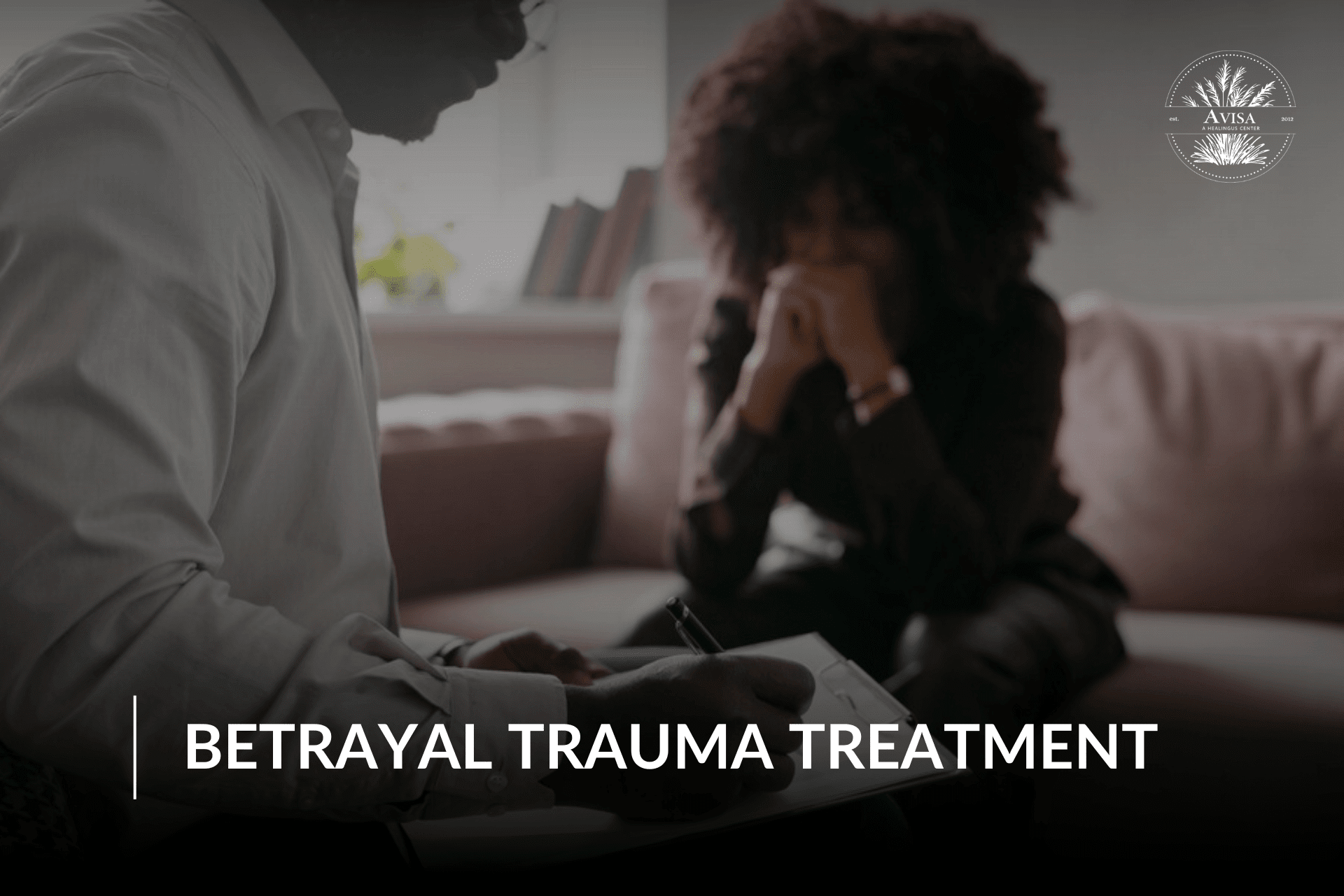Betrayal trauma treatment can help you heal when trust is broken by someone you deeply rely on, like a parent or a romantic partner. This kind of trauma doesn’t just cause emotional distress in the moment, it can have lasting effects on self-esteem, mental health, and relationships.
Studies show that betrayal trauma can impact brain function, affecting areas linked to memory and emotional regulation. Many people, especially those who experience betrayal in childhood, may struggle with trust, attachment, and self-worth long after the event.
In this blog, we’re going to figure out how betrayal trauma affects your well-being and the signs of seeking betrayal trauma treatment. This way, you should know the steps you can take to heal and rebuild trust.
Stages of Betrayal Trauma
Betrayal trauma doesn’t follow a straight path. It’s messy, unpredictable, and deeply personal. While everyone’s journey is different, these are the common stages people go through:
-
Shock
The mind refuses to accept what happened. It feels unreal, like a bad dream you can’t wake up from.
-
Denial
A defense mechanism kicks in. You might convince yourself it’s a misunderstanding or downplay the betrayal to protect yourself from pain.
-
Obsession
Thoughts spiral. You replay moments, search for signs you missed, and overanalyze every detail, trying to make sense of it.
- Anger
Rage bubbles up—at them, at yourself, at everything. It feels like the only thing keeping you from collapsing under the weight of hurt.
-
Bargaining
You wonder if you could have done something differently. Maybe if you had been better, kinder, more attentive—things wouldn’t have turned out this way.
-
Depression
The sadness settles in. It’s heavy, numbing, and sometimes makes the world feel distant. Even things you once loved might not bring comfort.
-
Acceptance
Not forgetting, not forgiving—just understanding that what happened is part of your story. This stage isn’t about moving on but learning to live with what is.
There’s no timeline for healing. You might move back and forth between stages, and that’s okay. What matters is finding a way forward at your own pace.
Physical & Mental Symptoms of Betrayal Trauma
Trauma affects everyone differently, and its symptoms vary from person to person. However, some common signs can help identify when support is needed for healing.
- Alexithymia
- Cognitive Fog
- Major Depressive Episodes
- Generalized Anxiety and Hyperarousal
- Affective Dysregulation
- Dissociation
- Panic Disorder
- Social Withdrawal
- Intrusive Cognitions and Re-experiencing
- Somatic Dysregulation
- Sleep Disturbances
- Substance Use Disorders
- Disordered Eating Behaviors
- Attachment and Trust Deficits
Seeking support, whether through therapy, self-care, or trusted relationships, can help in the recovery process. Healing takes time, but it is possible.
Understanding the Emotional Impact of Betrayal
Psychologist Jennifer Freyd introduced the idea of betrayal trauma in 1991. She explained that this trauma happens when someone you rely on for support or protection breaks your trust, like a parent or a romantic partner.
Betrayal trauma can happen in childhood or romantic relationships. Childhood betrayal affects how a person forms connections later in life. In relationships, betrayal can break trust and impact emotional stability.
Childhood Betrayal
When a child is betrayed by someone they trust, the effects can stay with them for years. They may struggle with:
- Understanding and expressing emotions
- Anxiety, depression, or panic attacks
- Nightmares and sleep issues
- Physical symptoms like stomach pain
- Difficulty trusting others and forming close bonds
- Coping through food, substances, or dissociation
To maintain their bond with a caregiver, a child might block out the betrayal. While this helps them feel safe at the time, it can later impact their memory, trust, and sense of self.
Infidelity Trauma
In relationships, betrayal often happens through cheating, but financial dishonesty or broken promises can also cause deep emotional pain. This can lead to:
- Low self-esteem and self-worth
- Feeling numb, angry, or overwhelmed
- Constant overthinking about what happened
- Struggles with trust and emotional stability
- Physical issues like insomnia or stomach problems
Some people unknowingly overlook warning signs to avoid facing the pain or because they feel stuck, whether financially, emotionally, or due to shared responsibilities. Betrayal can shake your confidence in relationships, making it hard to trust again.
Betrayal Trauma Treatment Approaches
Rebuilding trust after betrayal feels impossible but with the right treatment and approach, healing is possible. It takes time, effort, and commitment from both sides. Trust may never return to what it was, but a new foundation can be built with honesty, accountability, and support. Here are some betrayal trauma treatments to work through it:
-
Trauma-Informed Therapy
A therapist trained in trauma can help process emotions, identify patterns, and rebuild trust in a safe environment.
-
Cognitive Behavioral Therapy (CBT)
Helps reframe negative thoughts, break cycles of self-blame, and develop healthier coping strategies.
-
Eye Movement Desensitization and Reprocessing (EMDR)
Often used for trauma, this therapy helps process painful memories so they don’t feel as overwhelming.
-
Attachment-Based Therapy
Focuses on understanding how early relationships impact trust and connection in adulthood.
-
Mindfulness & Self-Regulation Techniques
Practices like meditation, deep breathing, and journaling can help manage emotional distress.
-
Support Groups
Connecting with others who have experienced betrayal can provide validation and healing.
-
Self-Care & Boundaries
Prioritizing self-care, setting clear boundaries, and surrounding yourself with supportive people can aid in recovery.
Healing is not a linear process, and different approaches work for different people. The key is to find what feels right and take small steps forward.
How to Find a Betrayal Trauma Treatment Therapist
- Search for therapists who specialize in trauma and betrayal recovery.
- A doctor, friend, or support group may recommend a trusted therapist.
- Look for licensed professionals with experience in trauma therapy, CBT, or EMDR.
- A short call or first session can help see if they’re the right fit.
- If in-person options are limited, virtual sessions can be just as effective.
- The right therapist should make you feel safe, understood, and supported.
How Avisa Recovery Can Help You!
Every relationship experiences a rough patch, and there’s no shame in seeking help. Betrayal trauma can feel overwhelming, but healing is possible with the right support. At Avisa Recovery, our team of experienced professionals has helped over 20,000 individuals regain emotional stability and rebuild trust.
Through trauma-informed therapy, individual and group counseling, and holistic healing approaches, we provide a safe space to process emotions and restore self-worth. You don’t have to go through this alone. Avisa Recovery is here to help you with the best betrayal trauma treatment on your journey toward healing and resilience.
FAQs: Betrayal Trauma Treatment
Q: How can rehab help with betrayal trauma treatment?
A: When trust is broken, it can feel like your whole world has been shaken. Rehab provides a safe space with expert support to help people process emotions, build coping skills, and slowly regain a sense of stability.
Q: Can betrayal trauma lead to addiction?
A: Yes, and it’s more common than people think. Some turn to alcohol, substances, or other habits to numb the pain. At rehab, we don’t just treat addiction—we address the deep emotional wounds behind it.
Q: What therapies do you use?
A: Healing isn’t one-size-fits-all. We use trauma-focused therapy, CBT, EMDR, and group sessions to help process the pain, manage triggers, and rebuild trust in yourself and others.
Q: How long does recovery take?
A: There is no set timeline. Some start feeling better in weeks, while others take longer. What matters is having the right support and taking it one step at a time.
Q: Do you provide therapy for families or couples dealing with betrayal trauma?
A: Yes, betrayal trauma affects more than just one person. We offer family and couples therapy to help rebuild trust, improve communication, and support healing together.











